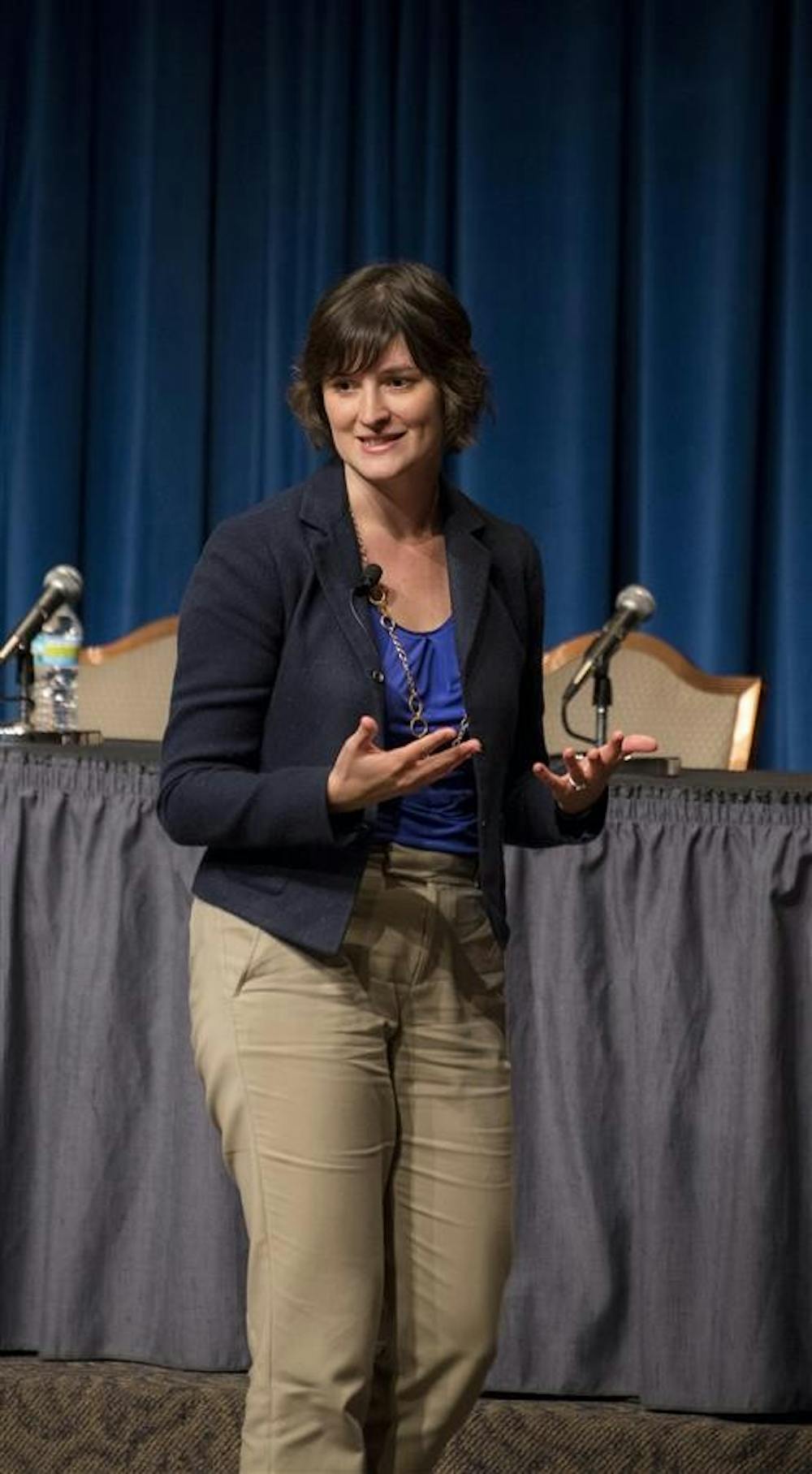As Sandra Fluke stood in front of students and faculty, she said she wanted to make one thing clear: the term “pro-choice” is outdated.
“A choice is between a blue and a black blazer,” Fluke said in Whittenberger Auditorium Tuesday night. “This is more than a label. We’re not going to just stop saying pro-choice and start saying reproductive justice. We have to have a broader agenda than just abortion access.”
Fluke, a current student at Georgetown University Law Center and reproductive and social rights advocate, spoke in a panel discussion sponsored by Union Board and Residence Hall Association.
Her name also made major news headlines in February 2012 after she testified at an unofficial congressional hearing about reproductive health care, which resulted in criticism from multiple conservative blogs, including radio personality Rush Limbaugh.
The radio host called Fluke a “slut” and “prostitute” on-air, which received national criticism that led to an official condemnation from House Speaker John Boehner. It also led to a personal invitation from President Barack Obama to speak at the 2012 Democratic National Convention.
“I’m frequently asked, what kind of advocate am I?” Fluke said. “I say strategic, which my PR people tell me is more appropriate than deviant.”
As two police officers stood to the sides of the stage, Fluke presented her concept of reproductive justice, which she believes should replace common labels such as “pro-life” and “pro-choice.”
“My family is actually pretty conservative,” Fluke said. “For me, what reproductive justice offers is for me to talk to them and agree with them. We don’t agree on abortion, but we can agree on women having access to contraception. We can agree to have breast and testicular cancer screenings.”
She emphasized the importance of expanding the discussion of reproductive health to several issues including sexual education, child-care rights, cancer screenings and civil and economic factors that affect decisions individuals make concerning sexual health.
The lecture then opened into an open panel discussion including IU faculty and students from the Maurer School of Law, School of Public Health and Kinsey Institute.
While no audience members publicly contested Fluke’s ideas, questions brought up everything from the lack of male presence in the sexual health industry to becoming politically active in the 21st century.
“What scares me is people think participating in social media is going to make a difference and I’m worried that we’re not learning how to make a change,” said Demetri Morgan, panelist and graduate student in Higher Education and Student Affairs. “It’s easy to change your default Facebook picture, but are you standing up on a day to day basis for an issue? I worry social media has become a crutch for us instead of a tool for pushing our message forward.”
Hands continued to raise as Union Board speaker and lectures director Paul Zuradzki wrapped up the discussion.
“I think our generation is interested in being more interactive and more engaged in terms of getting our voices heard than tired old partisan media,” Zuradzki said. “We felt Fluke was really relevant in terms of her identity as a student and goal to get students more involved in public advocacy.”
Despite serious subject matter, Fluke tried to keep the mood light.
“Are we all on board that we hate the label pro-choice?” Fluke said to laughs in the audience. “I don’t really hate it, but I think there are problems.”
Sandra Fluke addresses controversy

Get stories like this in your inbox
Subscribe





